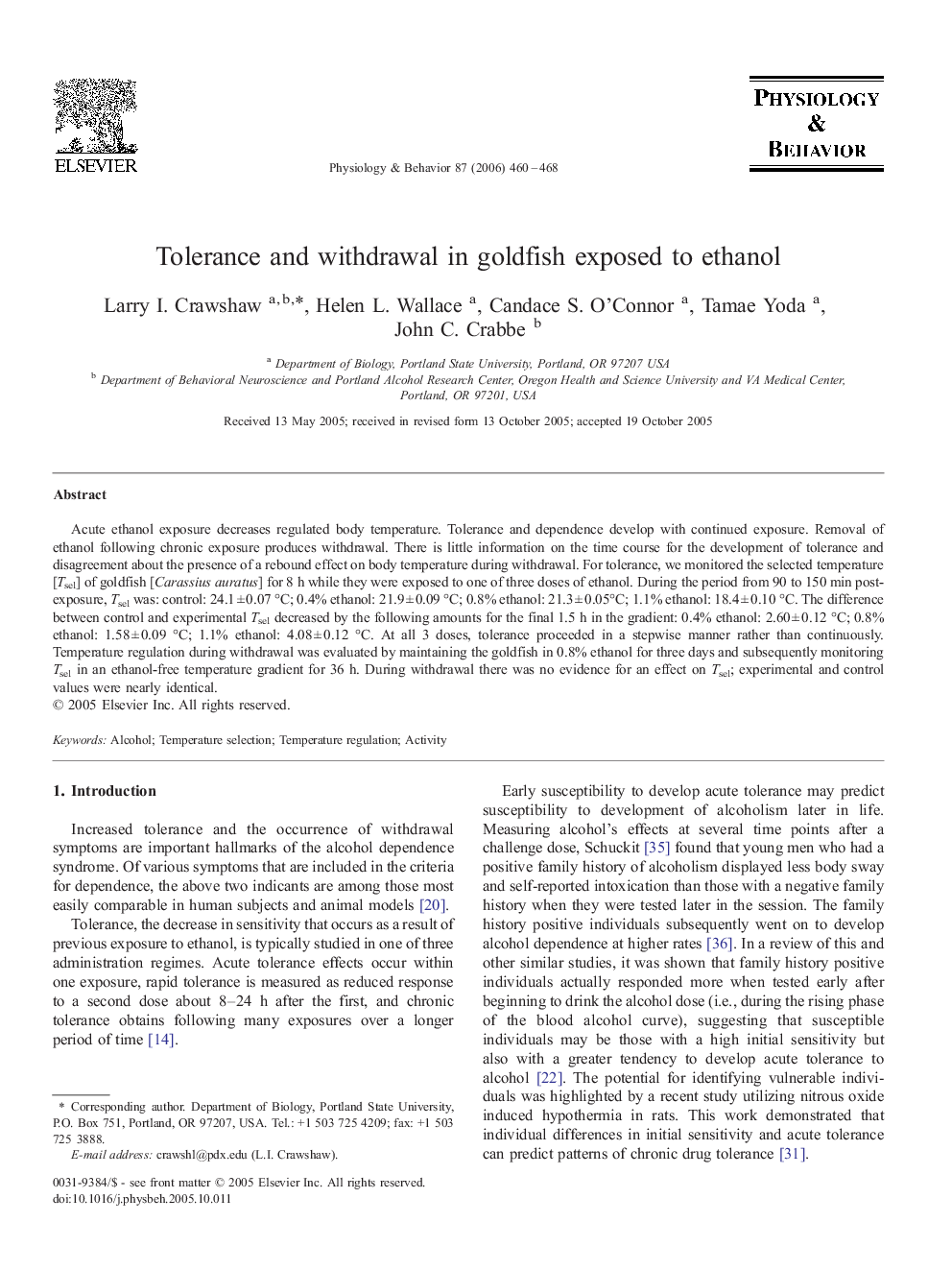| Article ID | Journal | Published Year | Pages | File Type |
|---|---|---|---|---|
| 2846330 | Physiology & Behavior | 2006 | 9 Pages |
Abstract
Acute ethanol exposure decreases regulated body temperature. Tolerance and dependence develop with continued exposure. Removal of ethanol following chronic exposure produces withdrawal. There is little information on the time course for the development of tolerance and disagreement about the presence of a rebound effect on body temperature during withdrawal. For tolerance, we monitored the selected temperature [Tsel] of goldfish [Carassius auratus] for 8 h while they were exposed to one of three doses of ethanol. During the period from 90 to 150 min post-exposure, Tsel was: control: 24.1 ± 0.07 °C; 0.4% ethanol: 21.9 ± 0.09 °C; 0.8% ethanol: 21.3 ± 0.05°C; 1.1% ethanol: 18.4 ± 0.10 °C. The difference between control and experimental Tsel decreased by the following amounts for the final 1.5 h in the gradient: 0.4% ethanol: 2.60 ± 0.12 °C; 0.8% ethanol: 1.58 ± 0.09 °C; 1.1% ethanol: 4.08 ± 0.12 °C. At all 3 doses, tolerance proceeded in a stepwise manner rather than continuously. Temperature regulation during withdrawal was evaluated by maintaining the goldfish in 0.8% ethanol for three days and subsequently monitoring Tsel in an ethanol-free temperature gradient for 36 h. During withdrawal there was no evidence for an effect on Tsel; experimental and control values were nearly identical.
Related Topics
Life Sciences
Biochemistry, Genetics and Molecular Biology
Physiology
Authors
Larry I. Crawshaw, Helen L. Wallace, Candace S. O'Connor, Tamae Yoda, John C. Crabbe,
